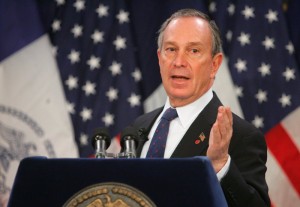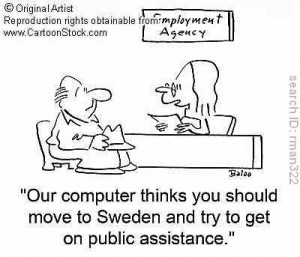 Michael Bloomberg is not running for president, but he is about to engage a presidential size problem -the intractable poverty and alienation of young black and Latino men in the inner city.
Michael Bloomberg is not running for president, but he is about to engage a presidential size problem -the intractable poverty and alienation of young black and Latino men in the inner city.
The New York mayor has just announced a comprehensive campaign on several fronts, including the location of job recruitment centers within public housing complexes, revamping supervised release programs to confront recidivism, establishing parenting classes for new fathers, and most controversially, the city’s Education Department will be directed to factor in the performance and graduation rates of black and Latino boys in its annual assessment of schools. A school that lags in graduating black and Latino teenagers will now be at risk of being closed.
 It is a smart strategy that is typical Bloomberg – funded two thirds by his own money and the money of his billionaire ally, George Soros, and one third by realigning public resources from less successful efforts; and unafraid to poke at some sacred cows in New York politics. As in most communities, the decision to close a school touches nerves, and Bloomberg’s accountability measures will shutter schools that can’t lift up their most vulnerable students.
It is a smart strategy that is typical Bloomberg – funded two thirds by his own money and the money of his billionaire ally, George Soros, and one third by realigning public resources from less successful efforts; and unafraid to poke at some sacred cows in New York politics. As in most communities, the decision to close a school touches nerves, and Bloomberg’s accountability measures will shutter schools that can’t lift up their most vulnerable students.
To be sure, Bloomberg’s plan is imperfect. To make headway, it will have to break the corporate resistance to gambling on high-risk, marginally skilled employees. It will also need to engage the churches and parishes that are consistently the most stable structures in the guts of the inner city. The implementation of the program will turn on individualized attention to its participants, which will stretch a probation and social services network that is already burdened.
But Bloomberg is right to deploy his personal and political capital on a crisis that cheapens the promise of his city. One wishes that Washington D.C. was as energized – to the contrary, the lip service on job creation has not even touched the struggles of unskilled minority men who are languishing.
 While congressional Democrats have walled off low income support programs from the coming round of budget reductions, they have left unprotected discretionary job training and student loan programs that can actually pull people out of reliance on public assistance. Republicans, meanwhile, have shown no recent interest in using their favorite asset, tax breaks, to steer businesses and jobs into devastated communities.
While congressional Democrats have walled off low income support programs from the coming round of budget reductions, they have left unprotected discretionary job training and student loan programs that can actually pull people out of reliance on public assistance. Republicans, meanwhile, have shown no recent interest in using their favorite asset, tax breaks, to steer businesses and jobs into devastated communities.
Part of the reason for Washington’s neglect is pinched resources, but another unmistakable factor is a change in the liberal and conservative brands. Liberalism today prioritizes building bureaucracies and corporate mandates; threatened by that mission, conservatism has turned its attention to preserving economic liberties and downsizing government. The goal of forging cohesive communities is dismissed as either too quixotic or too expensive.
 Democrats, in particular, should know better. Stratified communities, where vast inequality of opportunity is the rule, breed an “us versus them” politics that kills off progressive priorities. There is also this cruel reality: while the president of the United States is a fifty year old black man at the top of a monogamous, nuclear family, that door is closed, and closes early, for tens of millions of black and brown men. The Obama era shouldn’t end without a national campaign to turn that reality around.
Democrats, in particular, should know better. Stratified communities, where vast inequality of opportunity is the rule, breed an “us versus them” politics that kills off progressive priorities. There is also this cruel reality: while the president of the United States is a fifty year old black man at the top of a monogamous, nuclear family, that door is closed, and closes early, for tens of millions of black and brown men. The Obama era shouldn’t end without a national campaign to turn that reality around.
(Cross-posted, with permission of the author, from Politico’s Arena)









Leave a Reply